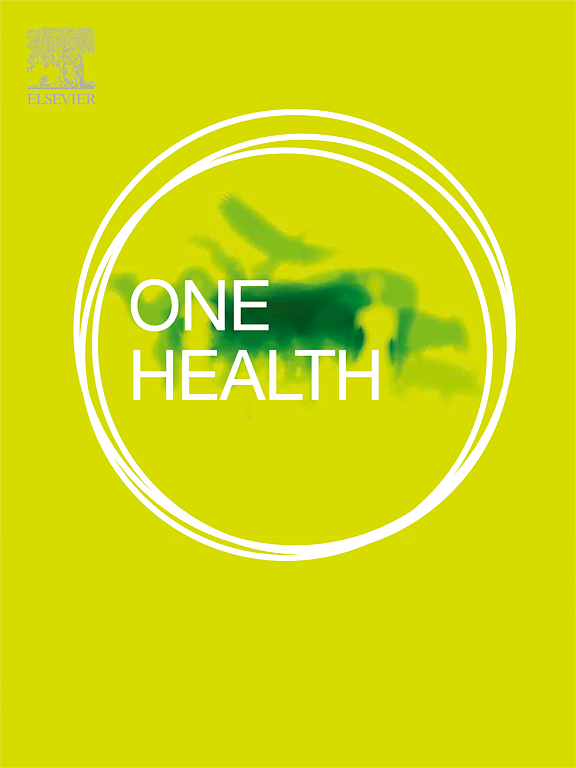Treatment of cattle with ivermectin and its effect on dung degradation and larval abundance in a tropical savanna setting
IF 4.1
2区 医学
Q1 INFECTIOUS DISEASES
引用次数: 0
Abstract
When ingested as part of a blood meal, the antiparasitic drug ivermectin kills mosquitoes, making it a candidate for mass drug administration (MDA) in humans and livestock to reduce malaria transmission. When administered to livestock, most ivermectin is excreted unmetabolized in the dung within 5 days post administration. Presence of ivermectin, has been shown to adversely affect dung colonizers and dung degradation in temperate settings; however, those findings may not apply to, tropical environment, where ivermectin MDA against malaria would occur. Here we report results of a randomized field experiment conducted with dung from ivermectin-treated and control cattle to determine the effect of ivermectin on dung degradation in tropical Tanzania. For intact pats, we measured termite colonization, larval numbers and pat wet and dry weights. Pat organic matter was interpolated from a subsample of the pat (10 g wet weight). Additionally, we counted larvae growing in the treated and untreated pats in a semi-field setting. We found that termites colonized ivermectin pats more readily than controls. Despite this, wet weight decreased significantly slower in the ivermectin-treated pats in the first two weeks. As water was lost, sub-sample dry weight increased, and organic matter decreased similarly over time for the treatment and control. Interpolated for whole pats, total organic matter was higher, and larval counts were lower in the ivermectin-treated pats after the first month. Our results demonstrate an effect of ivermectin and its metabolites on dung degradation and fauna in a tropical savanna setting. Because slow dung degradation and low insect abundance negatively impact pastureland, these non-target, environmental effects must be further investigated within the context of real-world implementation of ivermectin MDA in cattle and weighed against the potential benefits for malaria control.
伊维菌素处理牛及其对热带稀树草原粪便降解和幼虫丰度的影响。
当抗寄生虫药物伊维菌素作为血餐的一部分被摄入时,它可以杀死蚊子,使其成为人类和牲畜大规模给药(MDA)的候选药物,以减少疟疾传播。对牲畜施用伊维菌素时,大多数伊维菌素在施用后5天内不经代谢随粪便排出。伊维菌素的存在已被证明对温带环境下的粪便殖民者和粪便降解产生不利影响;然而,这些发现可能不适用于热带环境,在那里伊维菌素丙二醛可以对抗疟疾。在这里,我们报告了对伊维菌素处理和对照牛的粪便进行的随机现场试验的结果,以确定伊维菌素对坦桑尼亚热带地区粪便降解的影响。对于完整的部分,我们测量了白蚁的定植,幼虫数量和拍的干湿重量。从零件的子样品(湿重10克)中插入了零件的有机物。此外,我们还统计了在半田环境中处理过和未处理过的部分中幼虫的生长情况。我们发现白蚁比对照组更容易在伊维菌素部位定居。尽管如此,在前两周,伊维菌素处理的部分湿重下降明显较慢。随着时间的推移,随着水的流失,子样品的干重增加,有机物含量也相应减少。对整个部分进行插值,在第一个月后,伊维菌素处理的部分总有机质较高,幼虫计数较低。我们的结果证明了伊维菌素及其代谢物对热带稀树草原环境中粪便降解和动物群的影响。由于粪便降解缓慢和昆虫丰度低对牧场产生负面影响,必须在实际实施伊维菌素丙二醛对牛的背景下进一步调查这些非目标的环境影响,并与疟疾控制的潜在效益进行权衡。
本文章由计算机程序翻译,如有差异,请以英文原文为准。
求助全文
约1分钟内获得全文
求助全文
来源期刊

One Health
Medicine-Infectious Diseases
CiteScore
8.10
自引率
4.00%
发文量
95
审稿时长
18 weeks
期刊介绍:
One Health - a Gold Open Access journal.
The mission of One Health is to provide a platform for rapid communication of high quality scientific knowledge on inter- and intra-species pathogen transmission, bringing together leading experts in virology, bacteriology, parasitology, mycology, vectors and vector-borne diseases, tropical health, veterinary sciences, pathology, immunology, food safety, mathematical modelling, epidemiology, public health research and emergency preparedness. As a Gold Open Access journal, a fee is payable on acceptance of the paper. Please see the Guide for Authors for more information.
Submissions to the following categories are welcome:
Virology,
Bacteriology,
Parasitology,
Mycology,
Vectors and vector-borne diseases,
Co-infections and co-morbidities,
Disease spatial surveillance,
Modelling,
Tropical Health,
Discovery,
Ecosystem Health,
Public Health.
 求助内容:
求助内容: 应助结果提醒方式:
应助结果提醒方式:


